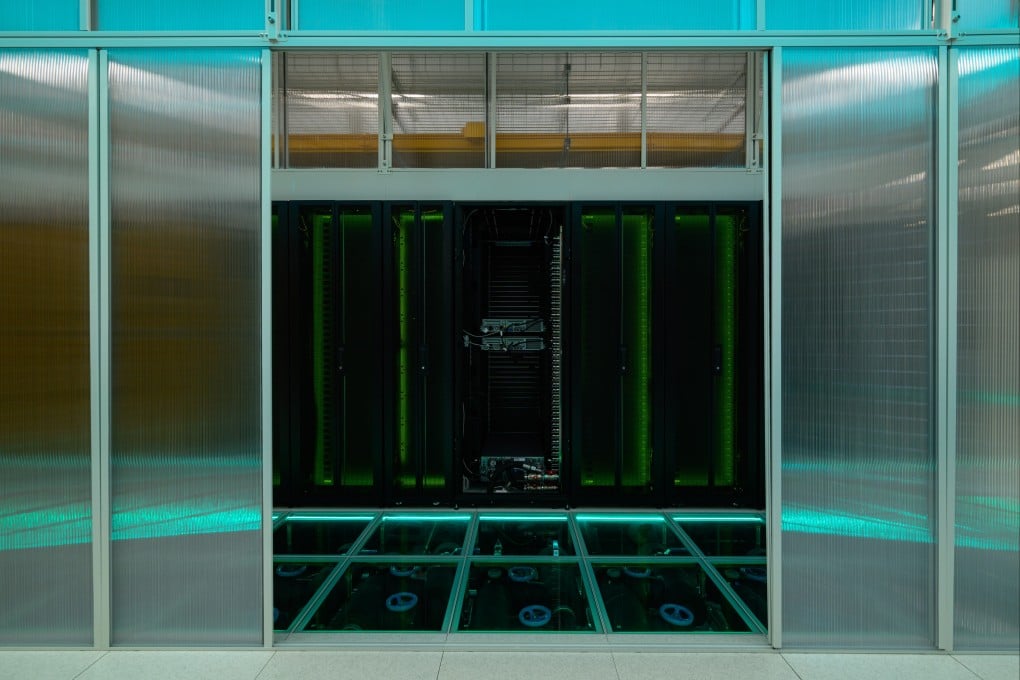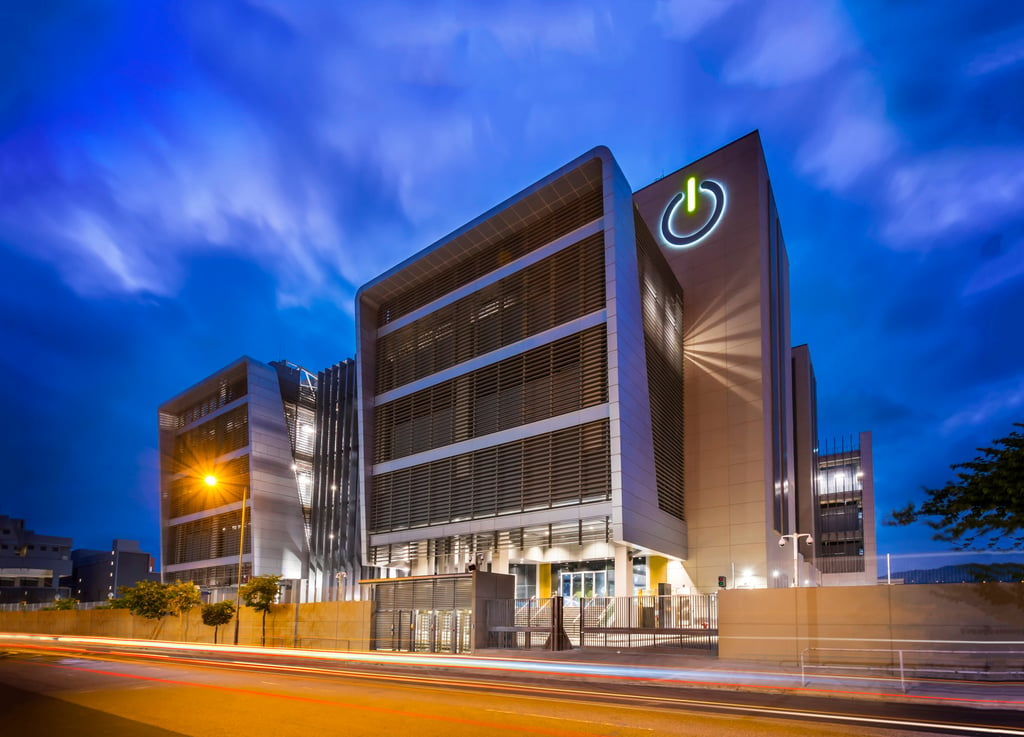As Chinese AI and GPU demand heats up, a Hong Kong data centre turns to liquid cooling
China-backed Global Switch is rolling out new liquid-cooling solutions in Hong Kong as its Tseung Kwan O facility see increased demand from the mainland

Global Switch, a data centre operator controlled by China’s state-backed Jiangsu Sha Steel Group, said demand from mainland artificial intelligence firms in Hong Kong is driving a need for new direct-to-chip cooling solutions it has started providing in the city.
“We’ve seen a huge increase in demand for higher and higher density racks,” said Ben Ryder, solutions engineering director at Global Switch. “In the last two years, we’ve seen requirements for 20 kilowatts [per rack] initially, 40 to 50, and now beyond that, up to 100 kilowatts, as we can support liquid cooling.”
Global Switch on Monday announced the availability of direct-to-chip liquid cooling in its 30-megawatt facility in Tseung Kwan O after last week inviting potential customers in to see what it called the first showcase of this solution in Hong Kong. Direct-to-chip cooling, which involves placing a cold plate with cool liquid running through it in direct contact with integrated circuits, is in increasing demand in data centres as power requirements for AI applications shoot up.

